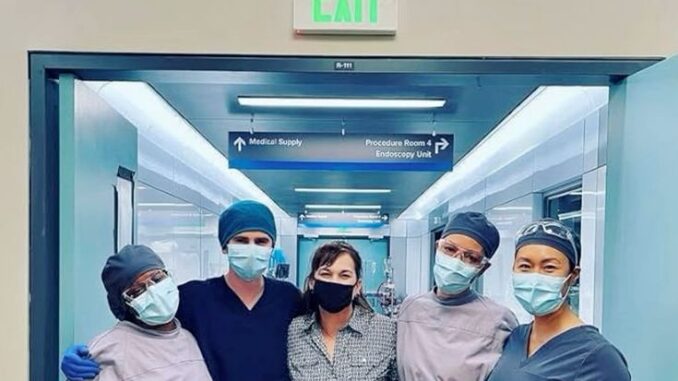
In a world where medicine often feels like a numbers game—where time is limited, decisions are rushed, and patients become charts rather than people—The Good Doctor dares to ask a question that cuts through the chaos: What if a doctor could see what others miss?
Not just see, but feel what’s really at stake.
Enter Dr. Shaun Murphy.
He’s not the kind of doctor you’re used to seeing in hospital dramas. He doesn’t dominate a room with bravado, nor does he win over patients with charm. Instead, Shaun navigates the world with meticulous logic, unfiltered honesty, and a level of brilliance that borders on the miraculous. Diagnoses others overlook become obvious to him. Complex surgeries unfold like three-dimensional puzzles in his mind. He doesn’t just practice medicine—he redefines how it’s understood.
But Shaun’s genius isn’t the whole story. In fact, it’s just the beginning. Shaun is on the autism spectrum and has savant syndrome, giving him extraordinary cognitive abilities but making social interaction a daily mountain to climb. He speaks with precision, not polish. He misses sarcasm. He struggles to read facial expressions, to comfort with words. And yet, what he lacks in typical bedside manner, he more than makes up for in something much rarer: truth.
From the pilot episode, Shaun’s journey is as much about breaking through stereotypes as it is about saving lives. He enters a prestigious surgical residency with credentials that wow the boardroom—and mannerisms that worry them. “He can’t connect with patients,” they say. “He won’t fit in,” others whisper. But Shaun doesn’t try to be someone he’s not. He fights every day to be the doctor he is—not despite his differences, but because of them.
That’s what makes The Good Doctor not just a medical drama, but a revolution in empathy. At its core, the series is a profound character study wrapped in the high-stakes world of modern healthcare. Yes, there are tense operations and dramatic diagnoses. But the heart of the show beats strongest in its quieter moments: when Shaun processes loss, faces rejection, or experiences joy in ways others don’t fully understand. And in doing so, he helps us better understand the full, complex spectrum of what it means to be human.

The beauty of the show lies in Shaun’s relationships. Dr. Glassman, Shaun’s longtime mentor and surrogate father, is more than just a guiding figure—he’s a symbol of faith in someone the world is hesitant to accept. Their bond is deep, fraught, loving, and honest. Then there’s Dr. Claire Browne, who meets Shaun with warmth and curiosity rather than judgment, proving that empathy—not pity—is what people on the spectrum truly deserve. From Dr. Melendez’s initial skepticism to Lea’s heartfelt love story, the people around Shaun don’t just change him—they’re transformed by him. And that transformation extends beyond the characters.
Week after week, The Good Doctor invites viewers into a richer, more inclusive understanding of intelligence, communication, and courage. It challenges assumptions not only about autism but about what we value in others. Do we equate communication with competence? Emotion with compassion? Shaun doesn’t fit into neat categories—and that’s the point. He’s brilliant, flawed, deeply feeling, sometimes frustrated, and often awe-inspiring.
The show doesn’t shy away from controversy. Whether it’s confronting ableism in the workplace, exploring how Shaun handles intimacy and romance, or showcasing how systems fail the vulnerable, The Good Doctor steps into difficult conversations with grace and purpose. It opens doors for representation that television has long ignored, and gives voice to communities rarely seen at the center of a primetime hit.
Shaun’s victories are hard-earned. He doesn’t just overcome medical obstacles—he overcomes the fear of being different. He makes mistakes. He questions himself. He feels heartbreak and elation, often in the same breath. And through all of it, viewers root for him—not out of pity, but out of recognition. Because haven’t we all felt out of place? Misunderstood? Desperate to prove we belong?
In Shaun Murphy, we see what happens when someone dares to bring their whole self to a world that’s not ready—but needs them anyway. So what if your doctor could see what others miss? Not just symptoms, but suffering. Not just conditions, but context. Not just medicine, but meaning. The Good Doctor answers that question with compassion, complexity, and breathtaking humanity. It’s a series that not only entertains—it enlightens. And as you follow Shaun’s journey, you may just find yourself seeing the world—and the people in it—a little differently.
